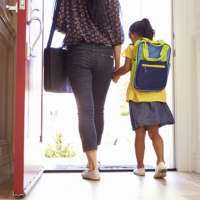parenting practices
-

Reflective Parenting with Young Children and Teenagers – recording
Reflective parents are able to think and speak with reference to states of mind and this helps their children and teenagers to feel understood and more closely connected.
Read more -

A systematic review of the association between parent-child communication and adolescent mental health
Open Access paper from JCPP Advances – ‘This systematic review addresses how adolescent-rated parent-child communication (PCC) quality is related to adolescent mental health.’ Holger Zapf et al.
Read more -

Comparing findings from the random-intercept cross-lagged panel model and the monozygotic twin difference cross-lagged panel model: Maladaptive parenting and offspring emotional and behavioural problems
Open Access paper from JCPP Advances – ‘We examine associations between maladaptive parenting and child emotional and behavioural problems in identical twins aged 9, 12 and 16.’ Marie-Louise J. Kullberg (pic) et al.
Read more -

Editorial Perspective: What can we learn from hunter-gatherers about children’s mental health? An evolutionary perspective
Open Access paper from the JCPP – ‘Here, we contrast hunter-gatherer childhoods with those of WEIRD (Western Educated Industrialised Rich Democratic) societies and consider the implications for children’s mental health.’ Nikhil Chaudhary and Annie Swanepoel.
Read more -

Parenting for lifelong health for young children
In this podcast, we talk to Professor Catherine Ward, winner of ACAMH’s Journal of Child Psychology and Psychiatry Journal Best Paper Award 2021, about her research into parenting for lifelong health for young children.
Read more -

JCPP Editorial: Volume 61, Issue 11, November 2020
“For crying out loud: Infant signaling and parental responsiveness” by Charles H. Zeanah
Read more -

PCIT-ED seems to improve parenting behaviour and affect towards children with depression
Data from a new study show that parenting behaviour and affect improved after completing a dyadic parent–child treatment for depression in young children (aged 3-6 years).
Read more